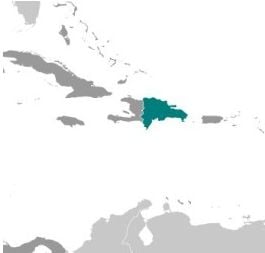
Statement on the Dominican Republic – Human Rights Council – 26th session
Human Rights Council, 26th session, 10 – 27 June 2014
Statement given by Glenn Payot, Geneva Representative, MRG
Thank you Mr. President,
Of the 21 recommendations which do not enjoy the support of the government, a large majority relates to the situation of Dominicans of Haitian descent: tens of thousands of men, women and children who have been deprived of their nationality following a Constitutional Court ruling in September last year. Often economically and socially marginalized and discriminated in the Dominican society, these people are at the risk of becoming stateless. Since this ruling, they live with the fear of forced eviction, in a state of legal uncertainty, and face multiple complications in their daily life when it comes to access to schools, hospitals and work.
Minority Rights Group, together with its local partners in the Dominican Republic, who are part of the Coalición Dominicana para el Derecho a la Nacionalidad (CDERNA), deeply regret that the Dominican government did not seize the opportunity of this review to take a strong commitment to abide by its international human rights obligations, and thereby respond to the numerous expressions of concern and condemnations from the UN, from the Inter-American Commission and Court of Human Rights, from the Caribbean Community and from numerous states during this UPR.
Mister President,
The Dominican Parliament passed a law on citizenship last month to mitigate some of the effects of the Constitutional Court ruling. This law divides Dominicans of Haitian descent into categories. On the one hand, it restores the nationality of part of the Dominicans of Haitian descent, namely those who have been registered in the Civil Registry at birth. On the other hand, it confirms the Constitutional Court ruling for the majority of the Dominicans of Haitian descent, who were not registered at birth. They will have to register as foreigners, and reside for an additional period of two years before being able to apply for naturalization, without guarantee of success. Thereby, the law confirms the problematic Constitutional Court ruling, instead of nullifying its effects. The law prolongs the legal uncertainty for two years and it does not mitigate the risk of statelessness faced by dozens of thousands of people, while having tremendous consequences on their daily lives.
In the words of President Medina, this new law is supposed to create “a country without exclusion and without discrimination”. Clearly, this promise is not fulfilled. We therefore urge the Dominican Republic to take all necessary measures to restore the nationality of all Dominicans of Haitian descent deprived by the decision of the Constitutional Court in September 2013 of their Dominican identity, and consequently of some of their basic human rights.
I thank you.